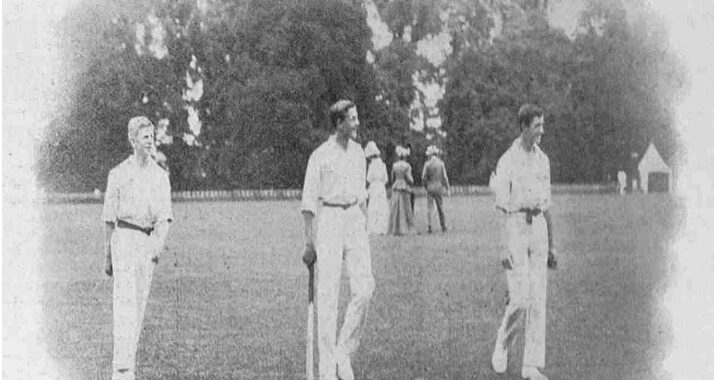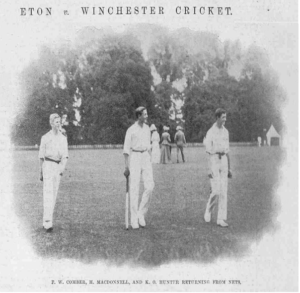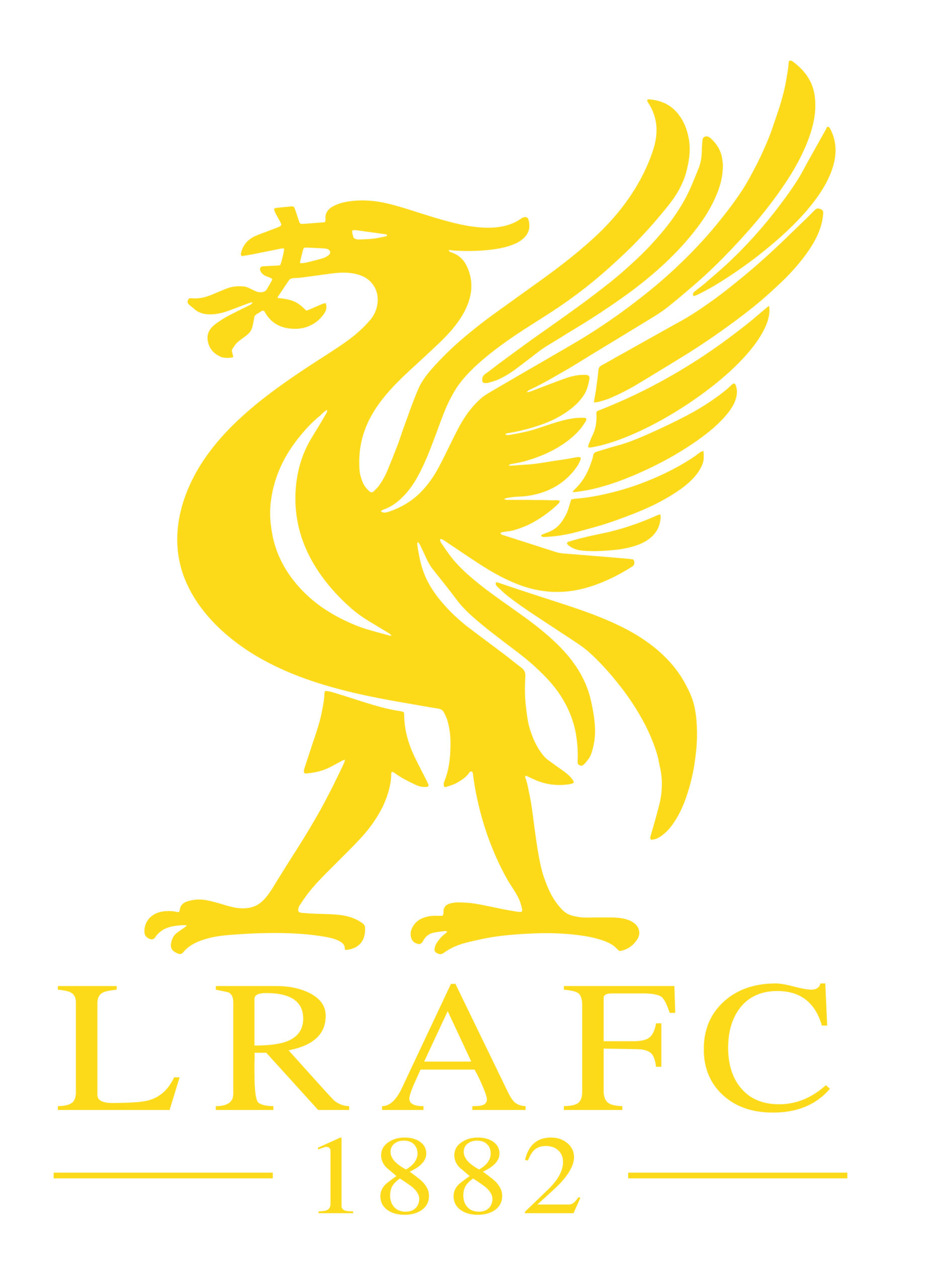
Frank Wandesford Comber
FW Comber , a Wykehamist Rambler
The son of a Brazilian-born British subject; Frank Wandesford Comber was a player of “proven ability” when he joined Liverpool Ramblers AFC in the autumn of 1902. His father Thomas, an East Indian Merchant, had settled in England when he married Anne, a curates’ daughter, at Wellingborough in 1866. The couple were living on a 94 -acre farm – Ratcliffe House near Newton- Le- Willows – when Frank, the 6th child to bless their union, was born on the 8th of August 1880 and baptised at the ancient parish church of St Oswald at Winwick.
The 1891 census reveals that the Comber family resettled at a house called “Leighton” in the Wirral Village of Neston, from where Frank was sent to be educated at Winchester School. During his time at the Hampshire location, he developed his sporting abilities on both the cricket and football field.

This photograph depicts Comber on the playing fields of Eton preparing for the annual cricket fixture of 1899. It turned out to be a most exciting affair. The home side appeared to be heading for a comfortable victory when Comber came in to bat during the second innings. He scored a defiant 42, and with the last Winchester Batsmen – put on over 80 runs. The Etonians, however, won the match by one wicket.
In the autumn of 1900, he “went up” to Oxford where he attended Magdalen College. He became a member of the University Association Football X1 and was soon awarded a Blue. On the 21st of February 1901, FW Comber, was in the Oxford side that opposed Cambridge at the Queen’s Club, Kensington in West London. The occasion was enhanced by the appearance of 100 riders from Lord Strathcona’s Horse, who were en route their to homeland of Canada having served with distinction in the Boer War. They had disembarked in England in order to receive a Colour, plus a medal, from King Edward. The Canadians could be seen mingling with a crowd of around 4,000 people when the referee, Captain Simpson (London Fusiliers), set the play in motion. The Dark Blues won a closely contested game – by 3 goals to 2 – that ended in a most bizarre fashion. The circumstances were described by a visiting journalist …”The Oxford victory had special popularity as they seemed likely to be robbed of the fruits of their exertions by an unfortunate act on the part of LR Hollins ( Eton & Trinity Hall) who deliberately handled the ball thus preventing a goal. Oxford, of course, had a penalty kick – a thing hardly thought of in University matches. CF Ryder, (Charterhouse & Magdalen) then kicked the ball straight into the hands of the Cambridge goalkeeper. However, a tardy retribution came, Hollins putting the ball through his own goal to score the winning goal for Oxford”. (Oxford Chronicle & Reading Gazette.)
According to the 1901 census, Frank Comber was studying, along with 3 other undergraduates, under the tutelage of Rhys Roberts at his home in the small North Wales seaside village of Llandanwg. Their host was the local registrar of Births, Deaths and Marriages. He returned to Oxford and was one of several “Old Blues” who appeared in the 1902 Varsity fixture that again took place at the Queen’s Club in London. Comber scored one of the goals as his side won 2-0. He left Oxford, having been awarded a BA, in June 1902 and began work as a Chartered Accountant.
He first appeared for both the Casuals and Northern Nomads before settling down to regular football with Liverpool Ramblers where he soon caught the eye of the Lancashire FA amateur selectors and – on the 30th of January, 1903 – he represented the Red Rose County against Cheshire on the home of Burnley at Turf Moor. Comber scored a hat-trick as his side won 5-2. The introduction of the “Oxford Blue” increased the scoring capabilities of The Ramblers forward line who began to win most of their matches by a convincing margin. Indeed, in the 1904 fixture against Shrewsbury School, Comber hit the back of the net on no fewer than eight occasions. On the 19th of November that year, the famous Sheffield Club, who were the current FA Amateur Cup holders, made a surprise appearance on The Ramblers ground at Crosby but returned back over The Pennines nursing a 2-0 defeat. Frank Comber continued to represent Lancashire on behalf of his football club and this caption shows the side – 11th of February 1905 – that played against Leicestershire at Coalville.

During the summer months the Old Wykehamist enjoyed his membership of Chester Golf Club – where he played off scratch – and won numerous competitions in other parts of the Country. However, his playing days with Liverpool Ramblers came to an end when moved to live in the South East of the Country where he became a member of Brighton Chess Club. He took part in the annual North v South tournament and won his game convincingly. It was around this time that Frank Comber caught the eye of Freida Mabel Charnard who was receiving an education while residing with her Uncle at Esher in Surrey. She was the daughter of a British born Tobacco Merchant who was now residing in Turkey. The couple’s official marriage ceremony took place on the 20th of May 1910 at the British Consulate in Istanbul, which in turn was followed by a service at the church of All Saints in the Moda district of the Turkish Capital. They were living at this location when their only child, Eileen Agnes, was born in 1911. However, due to the advent of World War One, the family were forced to return to England where they settled at Uxbridge in Middlesex. Frank continued to collect trophies on the Golf Course and spend his evenings at his local chess club. The family were residing at Wieland Road, Northwood in Middlesex when Freida joined the Great Majority on the 22nd of July 1931 and, sadly, did not live to witness the marriage of her daughter several years later. Frank Comber – who never remarried – continued to play golf during his retirement and, on the 3rd of October 1950, collapsed and died on Westward Ho! Golf Course in North Devonshire. This former Liverpool Rambler left all his possessions to his daughter Eileen Agnes Wilson.
